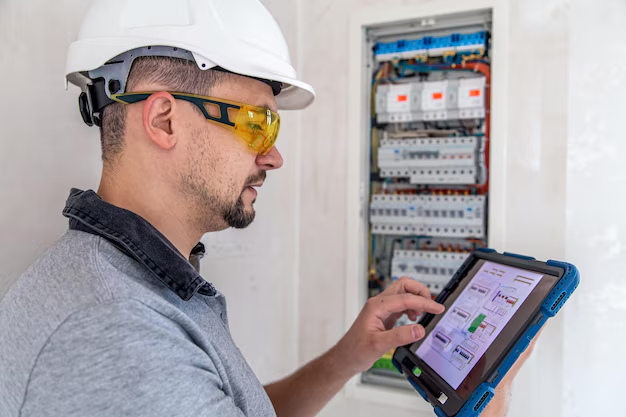Is Your Refrigerator Plugged into the Right Circuit? Discover the Importance of a Dedicated Circuit for Your Fridge
Modern kitchens are a marvel of design and technology, often filled with a suite of appliances that make our lives convenient and enjoyable. Among these, the refrigerator is undoubtedly a staple, quietly working while we go about our day. But how much thought have you given to the power behind your refrigerator? Specifically, should a refrigerator be on a dedicated circuit? This might seem like a trivial detail, yet understanding the nuances can prevent potential hazards and keep your kitchen running smoothly.
Why a Dedicated Circuit for Your Refrigerator Matters
Ensuring Safety and Efficiency
Every appliance in your home relies on electricity to function, and the refrigerator is among the most demanding in terms of power. Therefore, ensuring it has a dedicated circuit can prevent electrical overloads and serve as a safety measure. Electrical circuits in homes are designed to handle a specific amount of power. If too many appliances are plugged into a single circuit, you may experience power fluctuations or even circuit breaker trips.
Benefits of a Dedicated Circuit:
- Prevents Overloads: Reduces the risk of blowing fuses or tripping breakers.
- Enhances Efficiency: Can improve the performance and longevity of your refrigerator.
- Safety First: Minimizes the risk of electrical fires.
Recognizing Your Refrigerator's Power Needs
A typical refrigerator requires more power during its start-up phase, which can strain a shared circuit. This spike in demand can inconvenience other appliances sharing the circuit, leading to inefficiency or, worse, circuit breaker trips.
Quick Tip: Check the electrical specifications on your refrigerator’s manual to understand its specific power needs.
Exploring Electrical Basics: Circuits and Their Roles
Understanding Circuits in Your Home
Home electrical circuits are akin to supply routes for electricity, each with a breaker or fuse that prevents too much current—referred to technically as amperage—from flowing simultaneously. A dedicated circuit means the line provides power to one significant appliance only, ensuring it functions optimally without interference from others.
Circuit Types:
- Dedicated Circuit: Solely serves one appliance, ideal for high-power devices.
- General-Purpose Circuit: Serves multiple outlets and lights, common in residential spaces.
The Role of Circuit Breakers
Circuit breakers are crucial for maintaining home safety but are often overlooked until they trip. These protective devices prevent excessive current flow that could lead to overheating and potential fires.
Dedicated vs. General Circuit:
- Better Control: Dedicated circuits give you more control over high-consumption appliances.
- Reduced Total Load: By isolating appliances, dedicated circuits prevent overloading.
How to Identify a Dedicated Circuit
Steps to Check Your Electrical Setup
Determining if your refrigerator is on a dedicated circuit involves a bit of investigation. Here’s a simple way to check:
- Locate Your Breaker Panel: Often found in basements, garages, or utility rooms.
- Identify the Circuit Labels: Look for labels indicating specific appliances.
- Testing the Circuit: Turn off the suspected breaker and see if power is cut solely to the refrigerator or other outlets too.
Pro Tip: Consult an electrician to verify or modify your home’s wiring if you're uncertain.
Troubleshooting Common Electrical Issues
Even with the best setups, issues can arise:
- Frequent Breaker Trips: Could indicate an overloaded circuit or faulty appliance.
- Dimming Lights: Often caused by large appliances sharing a circuit.
- Strange Odors: May suggest overheating wires, a serious issue that requires immediate attention.
If you experience any of these, it’s advisable to contact a professional.
The Benefits of Professional Assistance
Why Hiring an Electrician is a Smart Choice
Updating or verifying your kitchen’s electrical system isn’t just about ensuring your appliances work smoothly—it’s a safety investment. Electricians bring expertise that guarantees a dedicated circuit is safely installed, complying with local safety standards.
Advantages:
- Expertise and Experience: Knowledge of local codes and proper installation techniques.
- Safety Assured: Minimizes risk factors associated with amateur installations.
- Peace of Mind: Knowing your home meets safety standards.
Key Takeaway: For a reliable, worry-free home environment, professional installation is often the wisest choice.
Consumer Tips: Ensuring Electrical Safety in Your Kitchen
Keeping Your Kitchen Safe and Functional
Maintaining a safe kitchen goes beyond installing a dedicated refrigerator circuit. Consider these additional tips for optimum kitchen safety:
🛠 Practical Safety Tips:
- Unplug Unused Appliances: Reduces risk and saves energy.
- Regular Maintenance: Inspect and service appliances regularly.
- Stay Informed: Keep up with product recalls and safety advisories.
Summary Table: Electrical Safety Essentials
| Key Point | Description |
|---|---|
| Dedicated Circuit | Prevents overloads and ensures appliance efficiency. |
| Professional Install | Guarantees compliance with local safety codes. |
| Regular Inspection | Detects potential electrical issues early on. |
| Smart Load Distribution | Avoids using multiple high-demand appliances on a single circuit. |
Reflecting on Electrical Safety and the Role of Dedicated Circuits
In summing up, while a refrigerator on a dedicated circuit might seem like a minor detail, its importance can't be understated. The efficiency and safety of your kitchen hinge significantly on how well the electrical setup is designed and maintained. Ensuring your refrigerator and other major appliances are on individual circuits not only protects your home but also guarantees that each appliance performs at its best.
Embracing the principles of electrical safety, seeking professional advice, and staying informed all contribute to maintaining a kitchen environment that is both functional and safe. Knowledge truly empowers us—especially when it comes to safeguarding our homes and loved ones.
By implementing these measures, you're not just setting up a safer living space but also optimizing your appliances' performance, ultimately enhancing your everyday life. If questions arise about your electrical system's reliability or configuration, consulting a professional can provide clarity and confidence in your home's safety.

